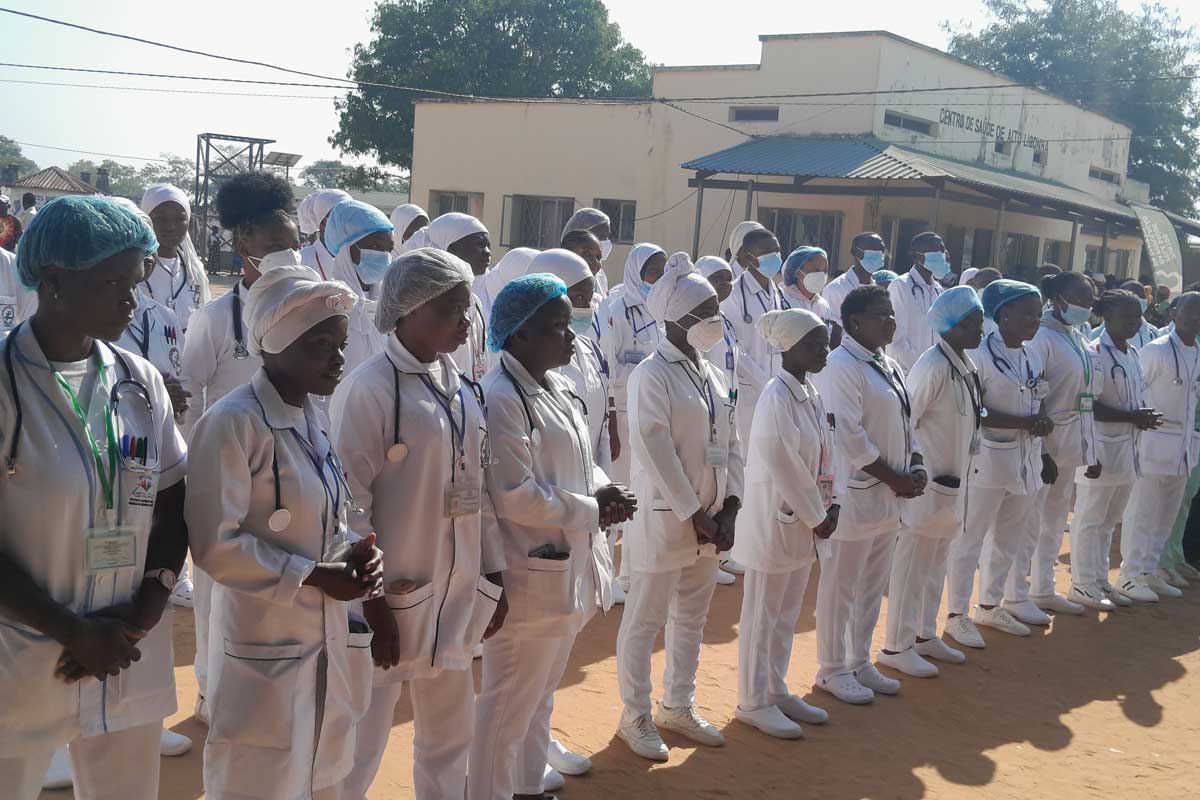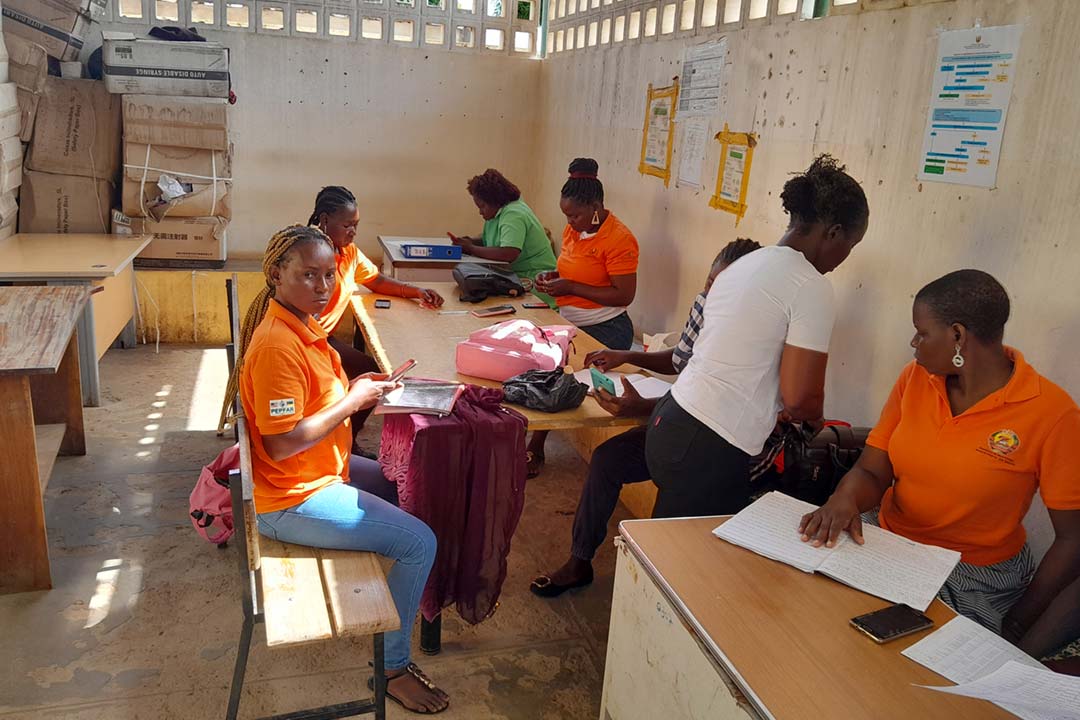How Mozambique leapt ahead on vaccination coverage
Charles Mangwiro visited a remote part of Zambezia, a historically a harder-to-serve province, to get a look at what’s driving the country’s striking progress.
- 9 October 2024
- 7 min read
- by Charles Mangwiro
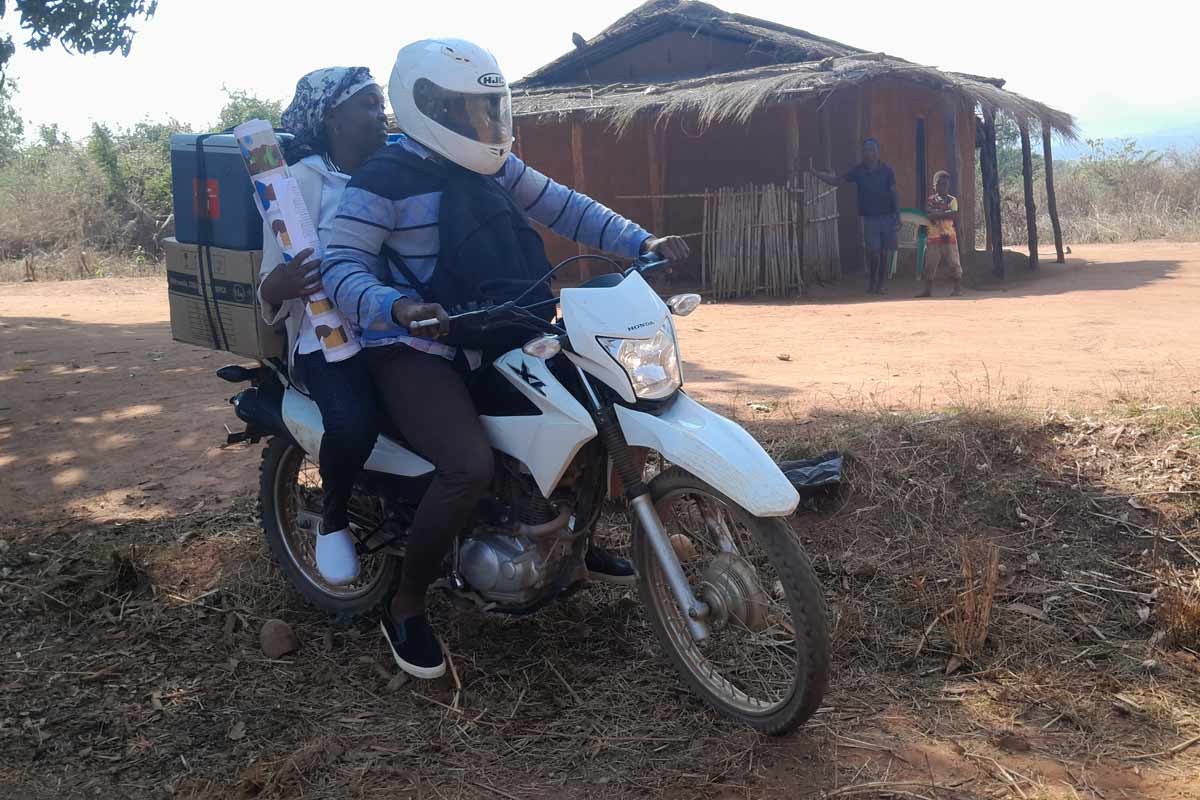
Felix Cardoso panted heavily as he unloaded a box of vaccine doses from his dust-caked motorbike at a village headman’s home in Gilé, a district in Mozambique’s Zambezia province. It had taken him more than seven hours to cover the 105 km distance from Quelimane, the provincial capital.
“It’s something called a road, but it’s not a road,” he says of the badly damaged track that links the country’s main highway to the remote district.
“It’s even worse on a rainy day because my bike swerves out of the slippery track when going up a hill, with a risk of losing all the vaccine doses I carry to health units in the district.”
“No going back”
Transport connectivity is among the most significant constraints to health care in remote areas of Mozambique. Particularly in rural parts of central regions like Zambezia, health facilities are located at long distances from communities, and the cost of travel is high, compromising access to care.
Alarmingly, health security has been rattled by the fact that routine vaccination, one of the most effective means of protecting communities from communicable diseases, took a brutal hit during the pandemic.
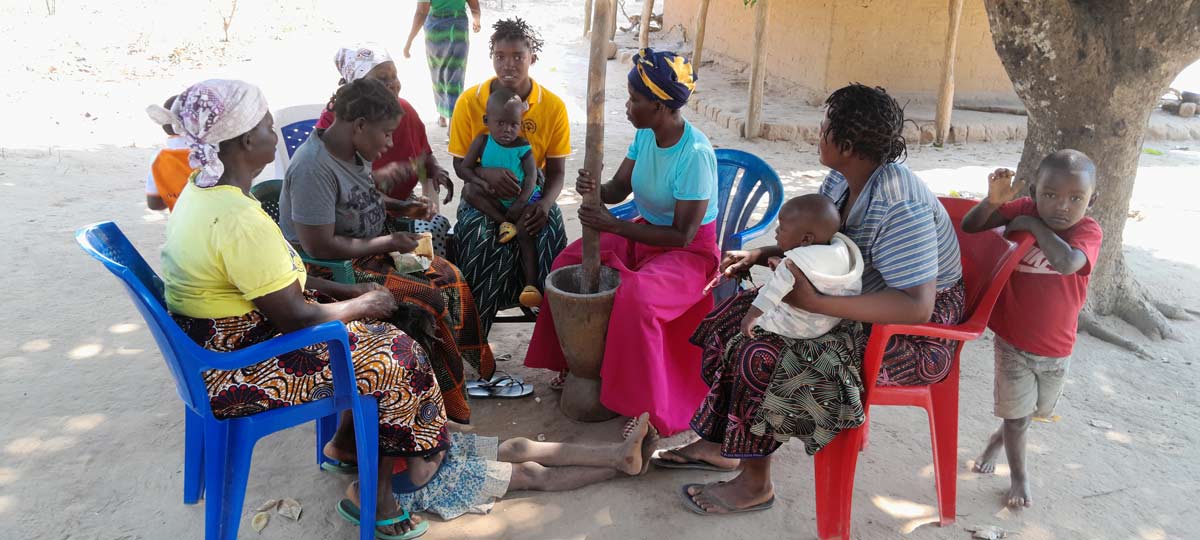
But the most recent data shows that despite the ongoing challenges, Mozambique’s immunisation system is leaping towards recovery.
“We have been working hard to recover the children we know were lost to vaccination as a result of the pandemic,” said Dr Leonildo Nhampossa, chief of Mozambique’s Expanded Programme on Immunization (EPI) in an email interview with VaccinesWork. “This has required dedication and effort from all EPI staff, at every level – and from partners.”
Official figures for 2023, released in July this year by UNICEF and the World Health Organization (WHO), show the effort is bearing fruit, with a heartening 15 percentage point jump in coverage with the third dose of diphtheria, tetanus and pertussis-containing vaccine (DTP3), which acts as the conventional marker for vaccination coverage in general. After diving from 85% in 2019 to 55% in 2022, DTP3 coverage in Mozambique had bounced back 15 percentage points to 70% in the year to 2023.
“We think our 2024 results will show even more improvement, as this year we implemented three Big Catch-up vaccination rounds in areas where we identified the greatest numbers of zero-dose children, supported by Gavi,” said Dr Nhampossa.
If biker Cardoso himself represents only a miniscule part of the colossal effort that this bounce-back continues to demand, his sense of mission may offer an insight into the energy fuelling it.
“We have been working hard to recover the children we know were lost to vaccination as a result of the pandemic. This has required dedication and effort from all EPI staff, at every level – and from partners.”
- Dr Leonildo Nhampossa, chief of Mozambique’s Expanded Programme on Immunization (EPI)
Having grown up dreaming of making music, Cardoso seems a little bemused to find himself “a rural biker transporting vaccines and boxes of medicines to hard-to-reach health units in order to serve lives”. However, he adds, “there is no going back.
“Sometimes I spend up to 11 hours to get to my destination because at times I push my bike through the bush to avoid sandy paths and wetlands. Vaccines must reach their intended destinations.”
Hand-to-hand for the hard-to-reach
Gilé, situated some 1,980 km north of the capital, Maputo, is home to just shy of 170,000 residents, most of whom are peasant farmers relying on rain-fed agriculture for subsistence.
One of 22 districts in Zambezia, the province which reports the lowest vaccination coverage in Mozambique, Gilé is known for having poor infrastructure. Its disadvantages have attracted commitments from donors – including Gavi, which nominated Gilé as a priority district for health systems strengthening funding, and made it a focus of a post-COVID-19 routine immunisation recovery plan.
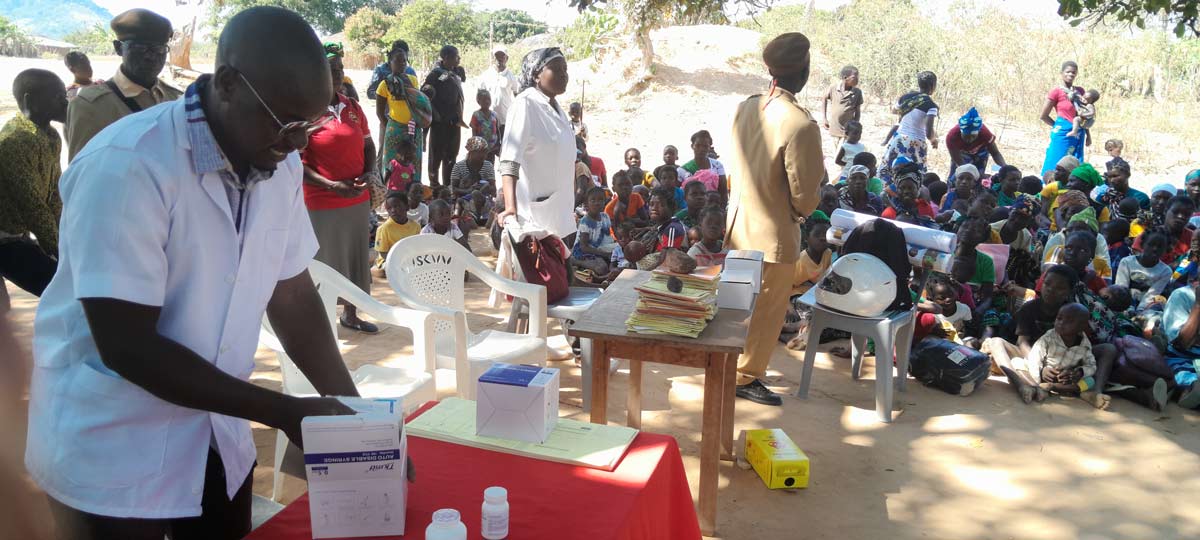
Locally, too, what it lacks in built facilities, it appears to make up for in dedication. Once a given consignment of vaccines is confirmed to be on its way – often on the back of Cardoso’s bike – community health workers in Gilé, locally known as Agente Polivalente de Saude (APS), begin to pay visits to community members at home, in order to mobilise them for immunisation.
“It is my job to make sure that communities have information about the arrival or availability of vaccines. I visit every home where I know there are children, and I return a day or two later to confirm that the child has been vaccinated,” Mena de Sousa, a Supervisor for the Expanded Vaccination Programme, told VaccinesWork in Gilé.
De Sousa added: “Sometimes we carry out awareness campaigns by gathering influential elderly women under trees, in areas with difficult areas, so that they take the message to those we will not be able to reach. Many women are spontaneously participating. Village headmen are also another key component of our work.
“We walk to some areas as far as eight kilometres or a bit more to raise awareness, and that is why I will keep on talking to them, to let them know that children can be vaccinated and feel better. I want them to know that this service is available and also very important.”
Adolfo David, Gilé District Head for the EPI, said the high numbers of children vaccinated are in large part down to the door-to-door efforts of the APSes.
"The door-to-door awareness campaigns are essential for spreading information about child vaccinations among the communities, to make people able to know about the dangers of preventable diseases, and this is why it is important to go to where the communities live,” David said.
Let’s talk about vaccines!
Aware of the importance of immunisation, one non-profit organisation in Mozambique, VillageReach, is implementing an initiative called Bate-Papo Vacina! (Let’s talk about vaccines!) Project, with support from the Wellcome Trust.
The three-phased, five-year project works with community caregivers of children under two, health workers and the Ministries of Health (MoH) to understand the barriers caregivers face in fully vaccinating their children.
It zeroed in on improving routine immunisation coverage in Namarroi and Gilé in Mozambique, as well as in Lilongwe and Mzimba North over the border in Malawi.
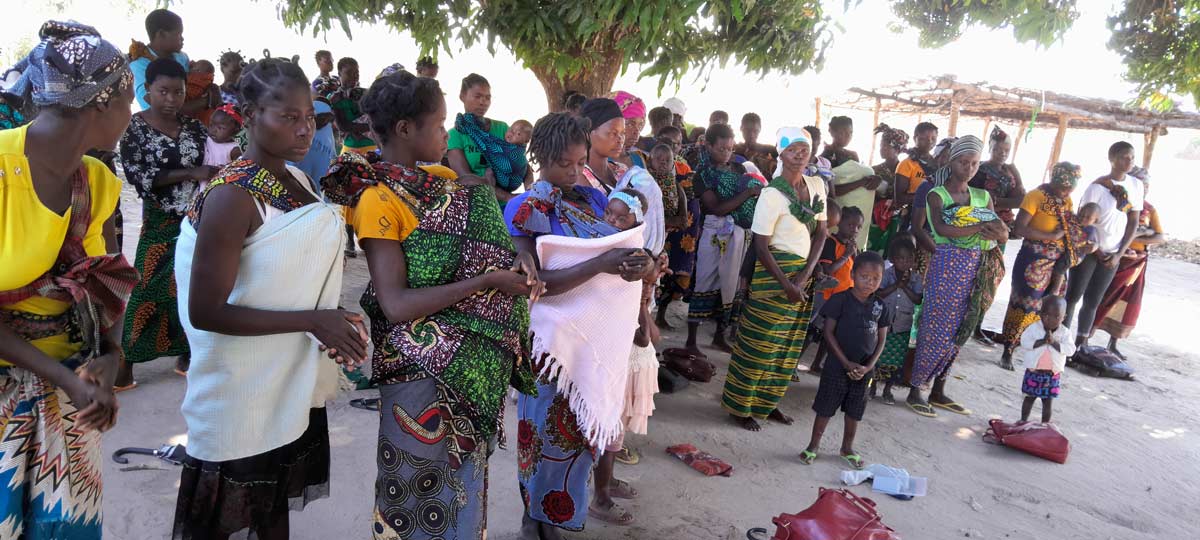
VillageReach’s Bate-Papo Project manager in Zambezia province, Gaspar Come, told this reporter that key interventions were identified and implemented across 11 health facilities in Gilé and Namarroi.
“With the robust community engagement of locals, the Bate-Papo Vacina Project assures that vaccines get where they are supposed to get,” said Come.
He has the figures to back that up. “During the 12 months (from September 2022 to September 2023) of our work in the phase of implementation in the communities, there was a substantial 133% reduction in dropouts and a 47% increase in the proportion of children fully vaccinated in comparison to the 12 months preceding the implementation,” Come said.
By end 2023, the project had surpassed its target for the number of fully vaccinated children, achieving a total of 9,041, he said. The initially projected total for that second implementation phase had been set at 8,257. All monthly targets for numbers of kids vaccinated were surpassed too, Come added.
He added: “The project is a success, and our target now is to cover all the districts in Zambezia province, and, at a later stage, we will cover the whole country.”
The project has been hailed by local health officials for breaking vaccination barriers, reducing dropouts in Gilé, and being the major driver behind gains in coverage.
Have you read?
“Something is changing”
“Yes, something is changing. To say that, when the project started here in the district, we had a 40% dropout rate, but until the first nine months, we were [down to] 8%. So, we are already at that acceptable level according to WHO international standards,” said Pacoal Torres, the Chief Doctor at Gilé District Hospital.
During the research phase of the Bate-Papo Vacina! project, community leaders and caregivers collaborated to develop pictorial cards and key messages to improve caregiver knowledge and agency, empowering them to make informed decisions about immunisation.
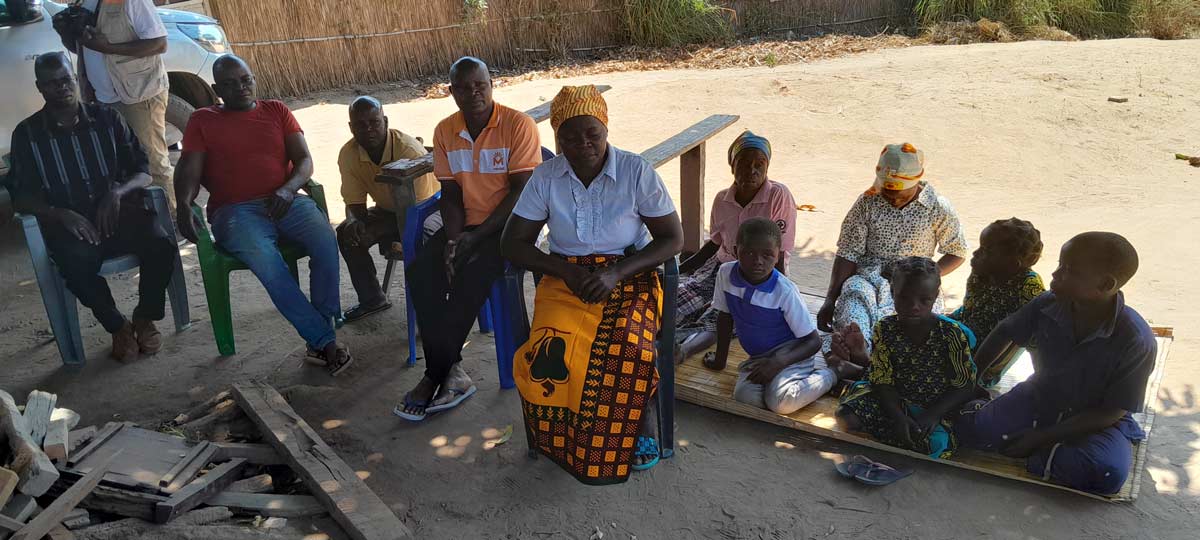
“Now, vaccination is no longer [surrounded in] myth. First, we have awareness lessons with health officials, then we go back to our communities and we talk about it the same way we gossip with our neighbours – be it under trees or at wells fetching water, and the end goal is to make sure each child in the village is immunised,” Joana Nauepa, a caregiver, proudly said.
In Gilé, mobile brigades were also prioritised to focus on communities furthest from the health facility, or on those most in need of vaccination services, a move described as “cross-cutting” by Neid Tavela, Head of Community Engagement at the Zambezia provincial Health Directorate.
“The (Bate-Papo Vacina!) project successfully met its vaccination targets. Analysis of the health system data on reported vaccinations indicated positive results,” Tavela said, adding that its impact is self-evident.
EPI boss Dr Nhampossa, meanwhile, describes Bate-Papo Vacina! As “one of the innovations we are using to make our outreach more effective”.
“As a programme, we are constantly trying to achieve more equitable access to vaccines, and outreach is one of our key strategies to do this. Bringing vaccines to remote communities, and integrating other primary health services with them, also supports our efforts to make it easier for women to access our services,” he reflected.
